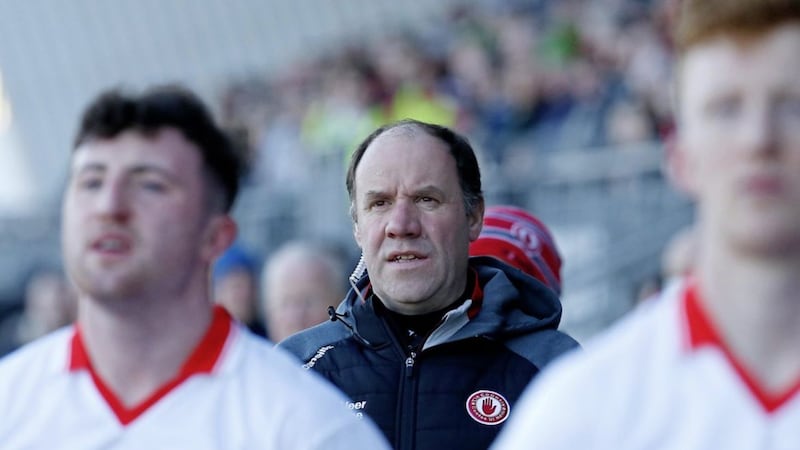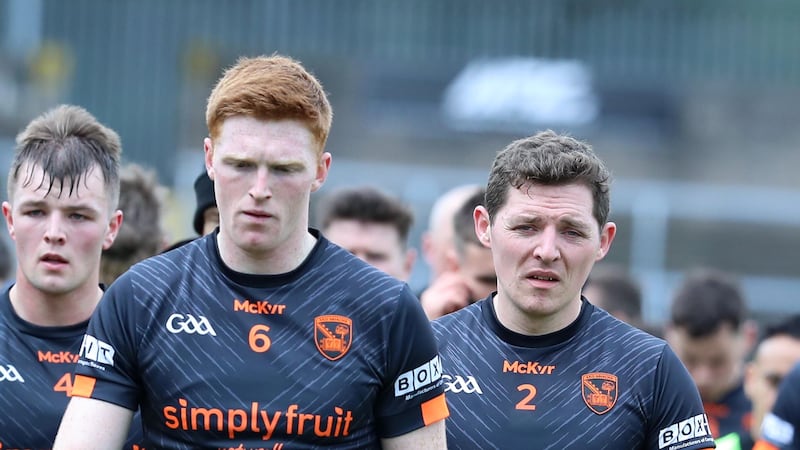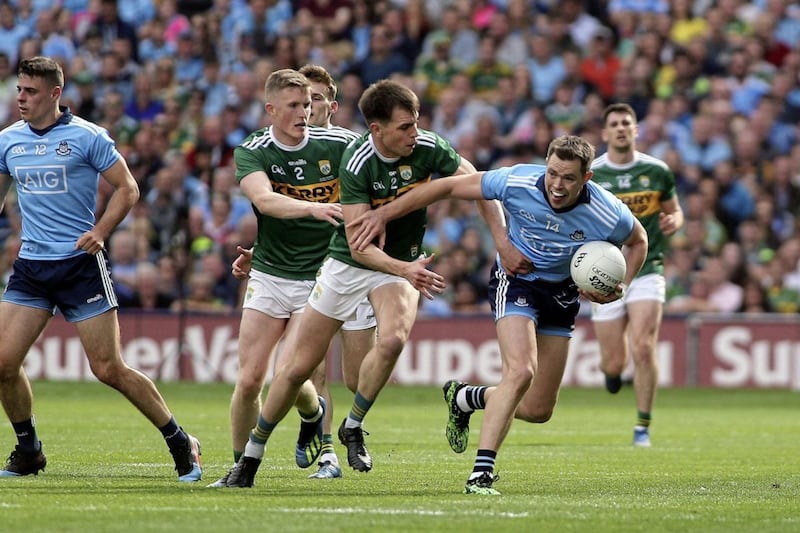THERE really is no solving the problem for inter-county players, but this war isn’t really about them.
It’s been great to see so many current players give the Club Players’ Association their public backing. No doubt that seeps into the public psyche and aids the promotion of the body for club players, which was officially launched yesterday.
There is going to be pressure on those inter-county players. Clubs want games, county teams want games, and players want to play for both. Their situation can be improved but no matter what way you slice it all up, it’s almost impossible to reduce the length of their season.
You can improve their training-to-games ratio, which is now a major threat to the longevity of inter-county careers. Colin Ryan’s decision to leave the Clare hurling panel indefinitely at the age of 28, citing the joy and relief at being able to accept an invitation to a mate’s stag do, was just the latest example of the effect the pressures of the modern game can have on young men.
The CPA won’t change that. Páraic Duffy’s proposals won’t change that. As long as they’re all trying to serve various masters, their lives will be hectic. But at last, someone is fighting the fight for the rest of the country.
A bit like the DUP, maybe the GAA just doesn’t recognise the depth of public disillusionment they’ve fostered. 2,319 clubs in Ireland that have to wait on the crumbs to fall from the table of the 32 counties before they can decide how to run their season.
Thousands and thousands of footballers and hurlers that equally can’t organise a stag do, that have to get married in December when it’s safe, that fall out with the wife or girlfriend or boyfriend over booking a holiday or even a weekend away.
I would admit to having been sceptical in the days between the idea of a Club Players’ Association being mooted and its launch at Ballyboden St Enda’s yesterday. Not sceptical of the idea itself, but of whether it would have the desired impact. That the first meeting was held in Croke Park and that discussions have been had between members of the CPA executive and Páraic Duffy hinted at a cosying-up job.
Part of me - and not just me - suspected that this proposed new body was merely an invention to facilitate some very public backing for Duffy’s proposals for the reformation of the football Championship. But at the launch, the 15-strong top table did enough to suggest that they truly will represent the needs of club players.
“We won’t be afraid to take radical action,” said CPA secretary Declan Brennan during yesterday’s launch, before hinting that Páraic Duffy’s proposals don’t go far enough.
There is ambition to further condense the Championship beyond what Duffy is proposing, by aiming to have the All-Ireland finals played on the August Bank Holiday weekend, if not before it.
That would be a healthy improvement on the situation than what the director-general is putting before Congress. To aim for early August would presumably mean that only the last eight in each code, at very most, would still be playing beyond the end of June.
Ultimately, the club and inter-county games are wrestling over the summer evenings and no amount of debate, discussion or anything else will solve Ireland’s climatic issues. That is the kind of timeframe the club game needs to have positive change truly affected. It’s the only kind of timeframe that will effectively split the inter-county and club seasons, which is what needs to happen.
Anything in between will not have the desired effect for club football. It will do the opposite. To squash the current number of inter-county games into a shorter window will definitively deny players the opportunity of playing for their clubs during the inter-county season.
In a majority of counties, they don’t play for their clubs during the inter-county season anyway. But some are more protective of their club games and for them, it would be hard to digest.
In his report to Derry’s annual convention at the end of last year, Oak Leaf secretary Danny Scullion pointed out the ills of such a formula: “There is a general perception that condensing the inter-county season will be to the benefit of the club player.
“However, we also need to be mindful of our club leagues. Under the current proposal we estimate that the number of league games for which county players are unavailable will increase.
“There is an almost inherent acceptance at the heart of the proposal that county players should not play in a majority of club league games. Although this is the case already in many counties, it is not the case in Derry and we believe it is wrong to go down this route.”
There is, as CPA secretary Declan Brennan conceded, no silver bullet. There is no one formula that is going to make everyone happy. The inter-county calendar being squashed will have to mean no round-robin quarter-finals, and most likely a reduction in television coverage, which will mean a potential drop in revenues.
But the GAA over-estimates how much it matters to the average club player that 80-something per cent is reinvested. There is a myth over that figure which requires some debunking. For instance, last year, €9.5m was spent on administrative costs, such as marketing, communications and IT costs.
€10.5m was spent on matchday costs. The percentage of revenue actually given back to counties is much smaller than we’d be led to believe. And so depreciation in the monetary worth of the All-Ireland series to the GAA would be an acceptable price to pay if that were to fix the fixtures.









